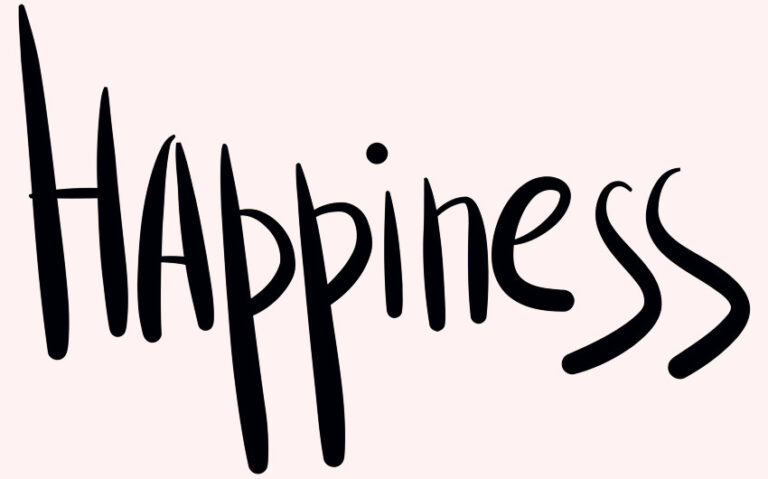Faking Happiness When Depressed: Why You Do It and What You Need Instead
Sometimes the hardest part of depression isn’t what you feel—it’s what you hide. If you’ve ever found yourself smiling when you want to cry, laughing while breaking inside, or acting “fine” just to survive the day, you’re not alone. This article gently explores why faking happiness happens, what it costs you emotionally, and how to begin making space for the truth behind the smile.
Why You Fake Happiness When You’re Depressed
Faking happiness is rarely about dishonesty. It’s usually about survival, safety, or fear of burdening others. Depression often comes with a quiet inner voice that says, “Don’t make it worse,” “Don’t let them see,” or “Keep it together.” You may wear the smile because:
- You want to protect others: You don’t want your pain to spill onto people you care about. So you hold it in, thinking you’re being strong.
- You fear being judged: There’s still a lot of stigma around depression. Faking happiness can feel like the only way to stay accepted in a world that doesn’t always understand mental illness.
- You’re exhausted by explaining: The weight of “What’s wrong?” or “But you seemed okay!” can be overwhelming. It feels easier to pretend than to defend your truth.
- You want to feel normal again: Smiling might feel like a small rebellion against the darkness—a way to reclaim something light, even if it’s forced.
This behavior is incredibly common—and often unnoticed. Many people living with depression become experts at looking “fine.” They go to work. They crack jokes. They check in with friends. But inside, they’re quietly breaking.
What “Smiling Depression” Looks Like
There’s a term for this experience: smiling depression. It’s when someone appears outwardly cheerful or high-functioning while experiencing symptoms of depression internally. You might be dealing with smiling depression if you:
- Maintain a full schedule but feel emotionally empty
- Appear energetic around others but collapse when alone
- Feel disconnected from the joyful version of yourself you’re showing
- Struggle with feelings of shame, guilt, or numbness while “performing” normalcy
Unlike more visibly debilitating forms of depression, smiling depression can go undetected for months or years—even by the person experiencing it. Because you seem okay, others may assume you are. And because others assume you are, you may feel pressure to keep the act going.
This disconnection between your inner world and outer presentation can lead to increased emotional distress. You’re constantly pretending, constantly managing, and constantly pushing your pain underground—which only deepens the isolation.
The Emotional Toll of Pretending to Be Okay
Faking happiness may help you get through a meeting or a conversation, but over time, it becomes emotionally exhausting. The cost can be steep:
- Emotional disconnection: You start feeling distant from your own self. The “you” that others see doesn’t match the “you” inside, and that gap becomes painful to carry.
- Chronic fatigue: Putting on a happy face takes mental and physical energy. Depression already drains you—faking joy adds another layer of depletion.
- Delayed healing: If no one sees your pain, they can’t help support you. Pretending to be fine makes it harder to receive the care and validation you deserve.
- Deeper isolation: You might feel like no one truly knows you. The more you hide, the lonelier you become—even in crowded rooms.
It’s important to understand: faking happiness isn’t a weakness. It’s a coping mechanism. It may be the only way you’ve learned to survive in a world that doesn’t always feel safe for vulnerability. But you deserve more than survival. You deserve peace—and you deserve to be seen as you are.
Signs You’re Hiding Depression Behind a Smile
Sometimes you don’t even realize how much you’re pretending—until the cracks start to show. Here are signs you might be hiding depression behind a mask of happiness:
- You overperform at work or in social settings but feel numb or withdrawn afterward
- You feel emotionally flat or hopeless in private, even though you “seem fine” to others
- You’re constantly exhausted, both physically and mentally
- You avoid talking about your real feelings, even with close friends
- You feel like you’re playing a role instead of living your life
These are not failures. They’re signals. They point to a deeper need for rest, truth, and emotional safety.
How to Begin Living More Authentically
Stepping away from the performance doesn’t mean sharing everything with everyone. It simply means creating small moments of honesty with yourself—and slowly building emotional safety with others. Here’s how to start:
- Check in with your body: What does pretending feel like in your body? Where do you hold tension? Tune in gently, without judgment.
- Name the truth (even privately): Try journaling or voice-recording what you’re really feeling. Let the mask drop in a space that’s just for you. “I’m tired.” “I feel alone.” “I don’t want to pretend today.”
- Share in small, safe ways: Choose one trusted friend or therapist and share a small part of your truth. You don’t need to explain everything—just start with, “I’m not doing as well as it seems.”
- Stop apologizing for your needs: Needing support, rest, or emotional honesty isn’t a weakness. It’s human. You’re allowed to ask for help, even if you don’t “look” depressed.
- Let go of the guilt: You’re not failing by struggling. You’re not broken because you can’t fake it anymore. You’re healing—and healing often begins with falling apart.
What to Do When You Can’t Stop Pretending
If faking happiness has become your default, know this: it’s okay to take your time. You don’t have to undo years of emotional masking overnight. But you do deserve support. Here’s what helps:
- Seek therapy or counseling: A mental health professional can help you process your pain safely and without judgment. You don’t have to carry this alone.
- Join a support group: Connecting with others who understand depression firsthand can remind you that you’re not weak, strange, or alone.
- Create safe spaces: Build relationships or routines where you don’t have to perform—spaces where tears, silence, or honesty are welcome.
- Relearn rest: Sometimes the most radical act is choosing to stop. Step away from pressure. Reclaim stillness. Rest is not a reward for productivity—it’s a right.
Most of all, be gentle. Undoing years of emotional suppression takes time. But each small moment of honesty is a step toward healing.
Final Thought
You don’t have to pretend forever. You don’t have to hide your pain to be loved. And you don’t have to wear a smile to be worthy of care. Real joy—the kind that stays—is born not from performance, but from permission. The more honest you become, the more peace you’ll feel. And slowly, you’ll remember: you never needed to fake it to deserve happiness.






